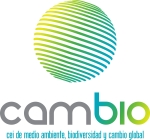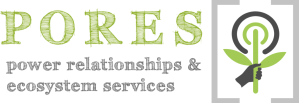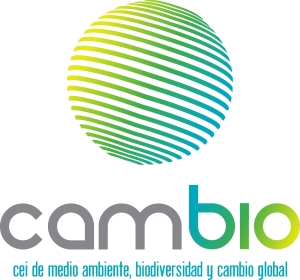CONTEXT
Since the release of the Millennium Ecosystem Assessment (MA 2005), the concept of ecosystem services (ES), i.e., the direct and indirect contributions of ecosystems to human well-being (TEEB 2010), has become highly relevant in science and policy-making capturing the attention and interest of a wide range of institutions and decision-makers involved in biodiversity conservation, landscape planning and socioeconomic development.
Since the very seminal work by Gretchen Daily on “Nature’s Services” (1997) a critical focus has been largely set on the “nature” side of the relationship between ecosystems and human societies, exploring ecological functions and processes. Concurrently, particularly since Costanza and colleagues’ (1997) first global economic valuation of ES, and particularly with the initiative of The Economics of Ecosystems and Biodiversity (TEEB, 2010) and a growing implementation of Payments for Ecosystem Services (PES) schemes (Muradian et al., 2013), the interest in the economic side of the framework has seen a rapid development (eg. Seppelt et al. 2011). However, in the last years, there is an increasing interest in further developing the social and cultural aspects within the ES framework (eg. Chan et al., 2012), both regarding the most forgotten of the three dimensions of ES value (ecological, economic and socio-cultural) and cultural ES. These steps are enriching the conceptual corpus of the ES framework while fostering innovation in methodological aspects. Still, we believe there are some socio-cultural aspects of human-nature relationships and environmental challenges that are not sufficiently explicit within the ES framework, particularly power relations.
Social-ecological interactions are severely conditioned by the inevitably asymmetrical positions of the elements at stake. Ranging from the appropriation of ES as resources for subsistence and social reproduction, to the prominent role played by some of these components in symbolic and emotional representations, providers and users of ES are always positioned asymmetrically in relation to the others, i.e. power relations are inherent to social-ecological systems (Escalera Reyes and Ruiz Ballesteros, 2011). As Kosoy and Corbera (2010) state, “the process of production, exchange and consumption of ES is characterised by power asymmetries which may contribute to reproducing rather than addressing existing inequalities in the access to natural resources and service”. Even if power relations have been mentioned and indirectly addressed in research about PES (eg. Pascual et al., 2010) and in trade off analyses, we suggest there is a need to explicitly integrate conceptual and methodological tools for power relations analysis (eg. Emerson, 1962; Foucault, 1988; Stone, 1988; Gliscynski, 1989) within the ES framework. By doing so, visible and invisible conflicts could be better incorporated in decision-making, and our understanding of social-ecological systems might improve.
OBJECTIVES OF THE WORKSHOP
Given the above mentioned context, the PORES workshop is meant to open a critical and innovative space for debate on how are (not) power relations already being integrated in place-based ES research and how could they be better explicitly incorporated, either with already existing epistemological frameworks or with new tools.
In these sense, the collective reflection will be driven by the following questions:
- Why is it necessary to incorporate power relations analysis within the ES framework?
- How have power relations been approached in ES research until now? Presentation of experiences and case studies.
- How could power relations analysis be introduced in the ES framework? Proposals from workshop participants.
- How could the suggested approach/es be implemented in practice? What general and context-dependent research and/or analytical tools could be useful to make it/them operative?
WORKSHOP PLANNING
The workshop will be held during two days, in the Universidad Pablo de Olavide, with a mixed open-closed format. The tentative program will be as follows:
Day 1 – 23rd October 2014
Morning:
Open session for the university community (in the context of the CEI CamBio session on “Biodiverity and Socialecological Systems”) where 3 or 4 speakers will be invited to participate at a round table.
Afternoon:
- Presentation of participants
- Introduction of the PORES workshop by the organizing team
- Half of the presentations by participants (10-15min/person)
Day 2 – 24th October 2014
Morning:
- Half of the presentations by participants (10-15 min/person)
- Collective brainstorming of relevant ideas already mentioned and possible new issues Selection/grouping of three areas of reflection and debate (with professional facilitation)
Afternoon (with professional facilitation):
- Work on the three small groups created in the morning
- Presentation of ideas on a plenary and collective debate
- Example: how could the/a suggested tool for the analysis of power relationships in ES research be applied in a case study: Mountain-EVO and/or Pegalajar (Jaén, Spain) examples
- Time for reflecting about the continuity of the created group (possibility of collective publication, Special Issue, activities within the Ecosystem Services Partnership, conference session organization, …)
FUNDED BY
Campus de Excelencia Internacional sobre Medio Ambiente, Biodiversidad y Cambio Global (CEI CamBio)



